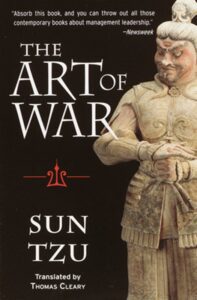Never is it a bad idea to avail yourself of all the wisdom and insight that the great minds of recent times have taken pains to set down in print. Which is why it’s handy that Bargain Books has collected for your consideration some of the best books out there on perspective, empowerment, life skills and influential thought. Here then are seven titles that we’re lovingly promoting – some real classics and some newer works – that we hope will be of help and interest to you.
Leaders Eat Last by Simon Sinek 
With his best known book, Start With Why, Simon Sinek compellingly argued that it is not what or how organisations do what they do, but why. It has become one of the most inspiring leadership books out there. But there is yet more to know about being a leader, and that’s why we have this one.
Why is it that some workplace teams are trapped in a cycle of bickering, infighting and failure while others are trusting, motivated and close knit? With Leaders Eat Last Sinek argues that it is not wildly idealistic to suggest that everyone who gets out of bed to go to work can do so inspired and happy. In fact, it’s an achievable goal.
Great leaders create great environments. They foster trust, security and fulfilment by knowing what is most important and by knowing how to champion that. Here, Sinek provides fascinating examples of workplaces and organisations that are getting this right, “from the military to manufacturing, from government to investment banking”. Leaders who are willing to eat last, he argues, are rewarded far more richly and ultimately achieve the dream of being surrounded by those who are not only happy in their work, but who are also willing to go the extra mile for their vision.
The Power of Habit by Charles Duhigg
 It’s not just about minor behaviours or unwanted patterns. It’s difficult to overstate the amount of influence that habit has on just about everything that happens in the world. This is a fundamental part of human nature – a part that can be harnessed for the better, or can prevail for the worse.
It’s not just about minor behaviours or unwanted patterns. It’s difficult to overstate the amount of influence that habit has on just about everything that happens in the world. This is a fundamental part of human nature – a part that can be harnessed for the better, or can prevail for the worse.
By exhaustively analysing a diverse group of personalities and organisations, from Martin Luther King Jr. to Michael Phelps, from superstores like Target and enormous churches to large hospitals and major sports teams, veteran business reporter Charles Duhigg illuminates this very human potential for transformation.
With the help of a generous scoop of neuroscience, The Power of Habit fascinatingly answers the questions: why do some people find it so hard to change, when others are able to transform themselves overnight? And what really are the deciding factors between failure and success?
Atomic Habits by James Clear
 Once The Power of Habit has taught you what habit is and how it exerts its influence, it’s more than worthwhile to learn, along with James Clear, how to break the bad ones and invite the good ones in.
Once The Power of Habit has taught you what habit is and how it exerts its influence, it’s more than worthwhile to learn, along with James Clear, how to break the bad ones and invite the good ones in.
With this ground-breaking book, habits expert James Clear demonstrates that making massive changes to your life really does begin with small decisions. Change is not one enormous shift by the compounded effects of many small ones. This practical and eminently useful treatise on the power of habit delves in psychology and neuroscience to reveal how a handful of tiny adjustments maintained over time can truly become something seismic, something transformative.
Throughout, Atomic Habits is sprinkled with the “inspiring stories of Olympic gold medalists, leading CEOs, and distinguished scientists who have used the science of tiny habits to stay productive, motivated, and happy.”
Who Moved My Cheese by Spencer Johnson
 Is cheese a powerful metaphor for what we really want? Of course it is! Who’s not into cheese?
Is cheese a powerful metaphor for what we really want? Of course it is! Who’s not into cheese?
In this case, cheese represents whatever you might want in life – whether it’s money, love or just peace of mind – and the hunt for this cheese, whatever it may be, takes place in a maze (because that’s just life, isn’t it?). It’s a simple and amusing story, and it has applications for absolutely any situation in which you are seeking fulfilment. The truth of it is, maybe who moved the cheese is not as important as how you deal with the fact that it has moved… which it will.
A true modern classic, Who Moved My Cheese is one of those titles that will be around forever… because its primary focus is dealing with change, and change, proverbially (and literally) is the only constant.
Spencer Johnson is one of the world’s most celebrated inspirational authors. His instructive parables have helped every kind of institution to become more resilient to change, more open to it and less fearful of it.
The Road Less Travelled by M. Scott Peck
 Here’s another real classic of personal improvement. This one has been around since the late 70s and has never stopped inspired and empowering people to overcome whatever challenges they might be facing.
Here’s another real classic of personal improvement. This one has been around since the late 70s and has never stopped inspired and empowering people to overcome whatever challenges they might be facing.
Drawing on the experiences of his career as a psychiatrist, Scott Peck combines scientific and spiritual views to guide us through the difficult, painful times in life by showing us how to confront our problems through the key principles of discipline, love and grace.
Teaching us how to distinguish dependency from love, how to become a more sensitive parent and how to connect with your true self, this incredible book is the key to accepting and overcoming life’s challenges and achieving a higher level of self-understanding.
The Art of War by Sun Tzu
 We’ve all heard of it. We all know that it has something to do with tactics and what not. We know it was written by a Japanese general and that it turns up in more movies than we can count. But have you actually read it?
We’ve all heard of it. We all know that it has something to do with tactics and what not. We know it was written by a Japanese general and that it turns up in more movies than we can count. But have you actually read it?
For many centuries, this has been the most prized treatise on strategy in the world. Just like change, conflict is an inevitable part of life. The Art of War sets down the thirteen concepts that must be mastered in order to navigate any contest of will with honour and efficacy – whether your battles take place in the executive sphere or on a more personal level.
Illuminating every force that impacts any campaign, from the importance of accurate information sources to the proper deployment of resources, from discerning the motivations of others to maintaining essential flexibility, this succinct work of instruction distils a massive and unwieldy topic into a series of punchy philosophies that stay true and useful no matter how the world might change.
To digest these all-encompassing tenets is to have an advantage going into whatever the world can throw at you.
Talking To Strangers by Malcolm Gladwell
 Talking to Strangers: What We Should Know About the People We Don’t Know, offers a typically thought-provoking look at how our interactions with strangers can go wildly awry, specifically focusing on those instances when misreading another person can have profound consequences. Being able to spot a liar is an essential skill – one that can see us safely through sticky situations and one that can significantly impact world events – and yet it’s not something at which we excel. In fact, it has been proved near-impossible time and time again. Not only that, but popular media seems hell-bent on the idea that instantly figuring somebody out based on the flimsiest clues is both easy and reliable… think recent Sherlock iterations, that show where the guy reads micro-expressions, and basically every detective show in existence.
Talking to Strangers: What We Should Know About the People We Don’t Know, offers a typically thought-provoking look at how our interactions with strangers can go wildly awry, specifically focusing on those instances when misreading another person can have profound consequences. Being able to spot a liar is an essential skill – one that can see us safely through sticky situations and one that can significantly impact world events – and yet it’s not something at which we excel. In fact, it has been proved near-impossible time and time again. Not only that, but popular media seems hell-bent on the idea that instantly figuring somebody out based on the flimsiest clues is both easy and reliable… think recent Sherlock iterations, that show where the guy reads micro-expressions, and basically every detective show in existence.
But this isn’t actually a book about flexing your inner Holmes, or learning how to charm strangers, Talking to Strangers focuses most powerfully upon some of the most major scandals that have happened simply because belief trumped evidence.
Happy Reading!

